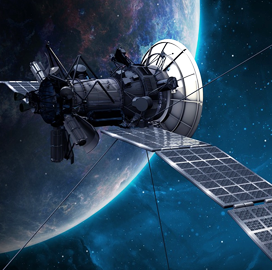NASA has launched 14 Flight Opportunities research payloads aboard Blue Origin‘s New Shepard reusable suborbital rocket to help researchers test new technologies and materials for space applications.
Among the payloads launched on New Shepard is a research project from the Massachusetts Institute of Technology to evaluate in-space manufacturing techniques to turn wax-based products like paraffin and beeswax into alternative fuel options for small spacecraft, NASA said Tuesday.
The agency also sent to space a project from Ecoatoms to advance the production of biosensors in low Earth orbit and an experiment by researchers at Montana State University and the University of Colorado Boulder that explores the use of a yeast variant to understand how the impact of microgravity on humans.
New Shepard lifted off from Blue Origin’s Launch Site One in West Texas and deployed the research payloads at an altitude of 351,248 feet.
“Working with commercial flight providers like Blue Origin allows the agency to make space exploration and commerce more accessible to a broader range of researchers,” said Danielle McCulloch, program manager for Flight Opportunities at NASA’s Armstrong Flight Research Center.

Join the Potomac Officers Club’s 2024 Space Summit on March 5 to learn how new technologies, commercial investments and adversarial threats are shaping the future of space operations. Register here to save your seat!





